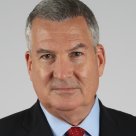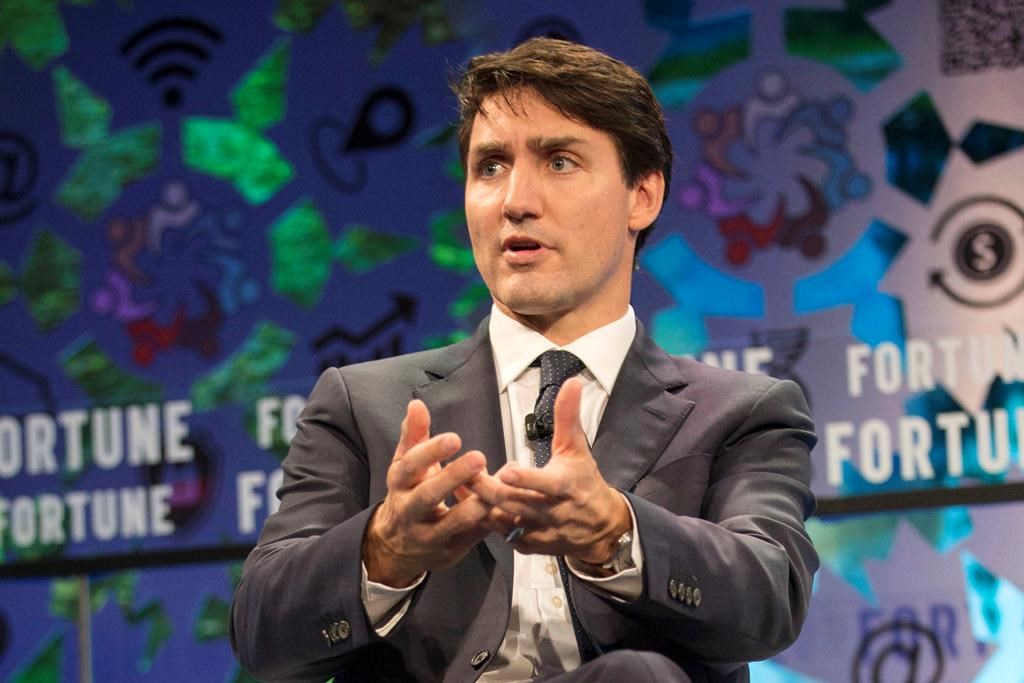The Trudeau government has said remarkably little about the 13 Canadians currently being held by Kurdish forces in northern Syria.

Each case, as Global News has been reporting over the last week, is unique ranging from children under five to a self-confessed ISIS sniper.
But if there is a common denominator to each case, aside from their citizenship, it is the Canadian government ’s lack of urgency to repatriate any of them.
In fact, Foreign Affairs Minister Chrystia Freeland seemed to suggest Monday that her government was more concerned with protecting law and order at home than hustling to help anyone get out of a Kurdish detention centre.
“I think we need to remember why they are where they are right now,” Freeland told reporters on Parliament Hill. “And I think what is important for Canadians to know is we take our public safety extremely seriously. That is our absolute top priority.”
In fact, the Trudeau government should be able to take all the time it wants on this file because unlike, say, the cases of Omar Khadr or Abousfian Abdelrazik, the Canadian government has not done anything to cause the 13 Canadians to be detained. It was not Canada’s fault that they ended up where they did. Therefore, Canada has no legal obligation to do a thing to help.
“At the end of the day, from a straight legal perspective, these people left Canada voluntarily … and once they were abroad, they made decisions in a complex political environment that landed them in trouble,” said Amir Attaran, a law professor at the University of Ottawa. “Obviously, they made decisions beyond their maturity.”
- What is a halal mortgage? How interest-free home financing works in Canada
- Capital gains changes are ‘really fair,’ Freeland says, as doctors cry foul
- Budget 2024 failed to spark ‘political reboot’ for Liberals, polling suggests
- Montreal UN aviation workers busted in China-Libya drone sale conspiracy
All a Canadian in trouble overseas can expect, Attaran said, is that Canada will “give you a passport to get you home and make some polite inquiries.”
Human rights lawyer Paul Champ agreed that, in general, “there is no positive duty on Canada to take active steps to repatriate a Canadian citizen.”
That said, Champ believes there are some specifics about the case of the 13 Canadians in Syria that could create “a duty to act” for Canada.
First, Champ said, there are the circumstances of their confinement. The Syrian Democratic Forces (SDF) who are holding these Canadians have taken hundreds of ISIS fighters, their wives and girlfriends, and their children off the battlefield and now have them in detention. The detainees come from nearly 50 countries, including Canada, and the SDF wants those countries to come get their nationals and take them home.
WATCH: ‘I’m going to die here’: Toronto woman captured in Syria says husband tricked her into going

“In these circumstances, i.e., where the liberty of the Canadian citizen is contingent on Canada taking some action, there may well be a positive duty on Canada to facilitate their return,” Champ said.
Not only that, but these Canadians are being held captive by a non-state actor and that, to Champ, means their human rights are being violated. And if the human rights of a Canadian abroad are being violated, that too, gives Canada motive to act.
“I understand why some people have little sympathy for these young people who stupidly travelled into a war zone, presumably on the basis of values or beliefs that most Canadians would find abhorrent,” Champ said. “But we can’t start deciding on whose rights to respect or ignore based on whether we like them or not, or whether we think they made bad or wise decisions.”
Champ thinks the government ought to be doing more to repatriate them precisely so the adults can be held accountable in a Canadian court for any crimes they may have committed.
“The test of our values is not whether we stand up for the rights of those who we like or agree with,” he said. “It’s when we defend the fundamental human rights of those with whom we disagree or find morally odious.”
Still, the law may be one thing. The cold political realities of a government in an election year are quite another.
Trudeau is unlikely going to want to repatriate anyone remotely connected with ISIS months before the election.
The Conservatives, sensing Liberal vulnerability, are already running Facebook advertising on this issue.
“Where it gets uncomfortable is the kids,” Attaran said. “Because the kids aren’t there through any choice of their own.”
And so, the question goes back to the government: How will it deal with innocent children and their parents, parents who may have been active members of one of the most brutal terrorist groups of the last century?
“Trudeau should acknowledge that this is an issue and a situation that has to be dealt with,” said Conservative MP Candice Bergen. “The government should come up with a plan and tell Canadians exactly what they plan to do.”
WATCH: Canadian ISIS fighter captured in northern Syria speaks out






Comments